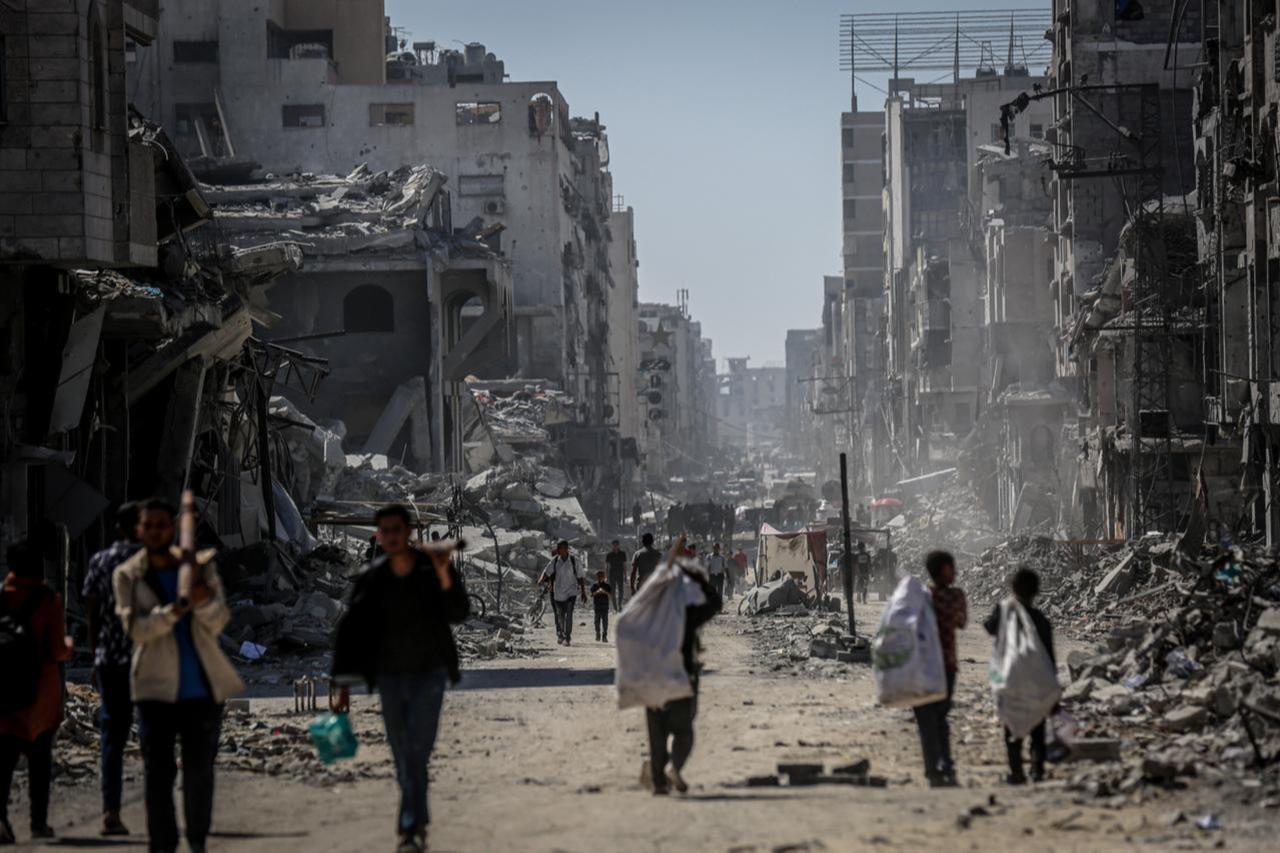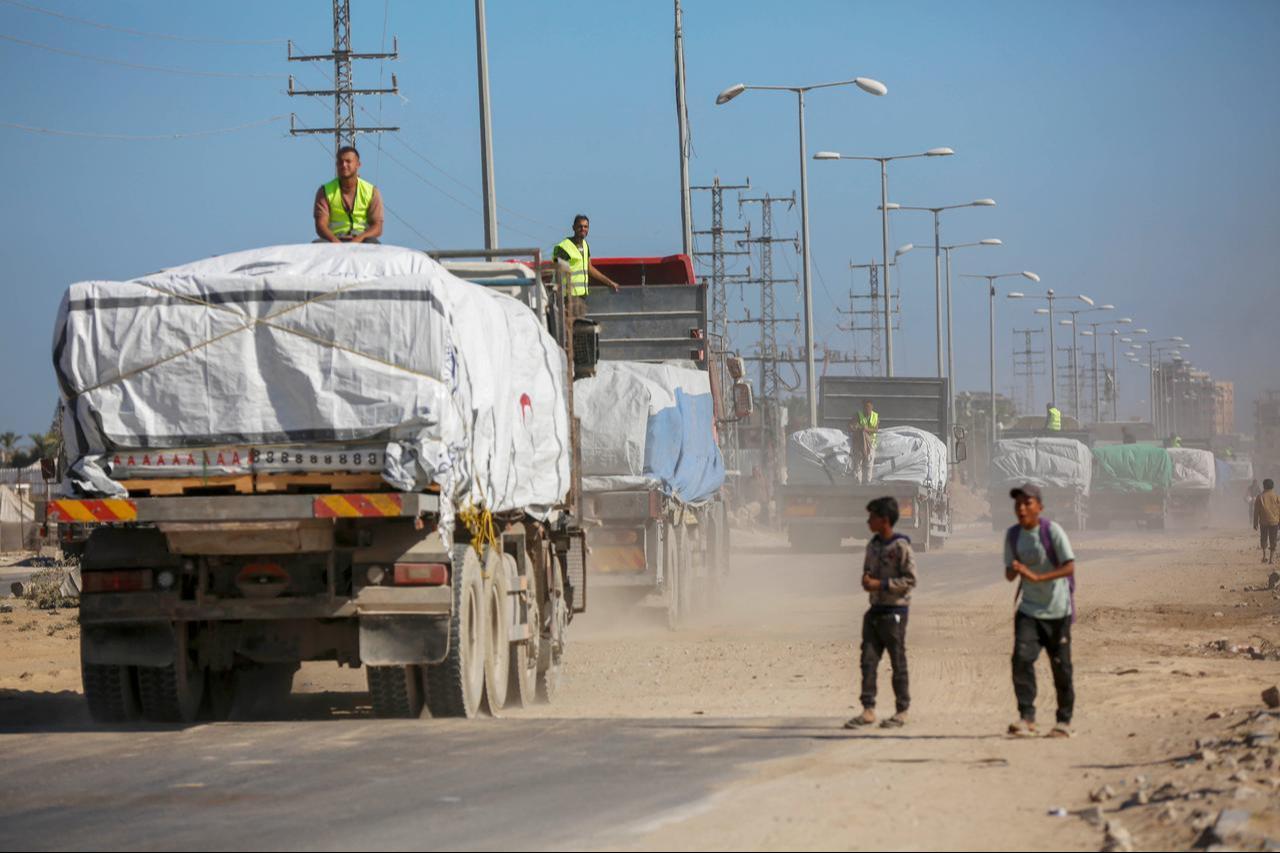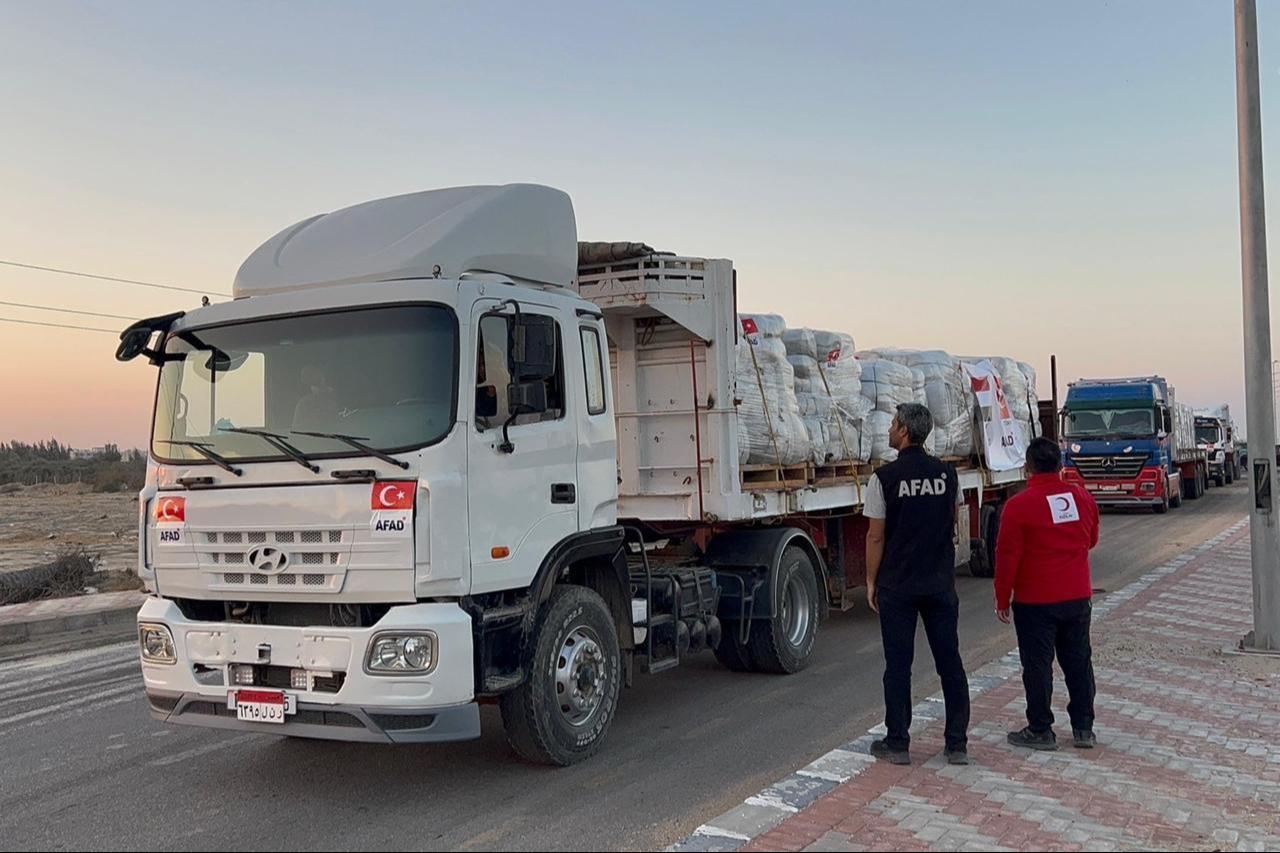
The Civil Defense Directorate in the Gaza Strip said that despite the cease-fire between Israel and Hamas, a “humanitarian catastrophe” continues across the enclave and urged immediate international intervention to address the aftermath of Israel’s ongoing military operations.
In a statement Friday, the directorate said that “no real change” had been observed since the ceasefire agreement on Oct. 10, noting that humanitarian aid entering Gaza remains insufficient to meet people’s basic needs.
“Homes are destroyed, bodies remain under the rubble, and roads are blocked by debris,” the statement said. “Civil defense teams are working under almost total deprivation amid massive destruction across Gaza. Urgent action is needed to deliver the necessary equipment to remove rubble, recover victims’ bodies, and ease Gaza’s suffering.”
The directorate emphasized that its teams are operating with extremely limited resources and that international intervention is urgently required. It called for the unrestricted entry of heavy machinery and equipment into Gaza to support debris removal, reconstruction, and rescue efforts.

Turkish Red Crescent (Türk Kızılay) President Prof. Dr. Fatma Meric Yilmaz announced a post-cease-fire recovery plan for Palestine, pledging that the organization would cover one-fourth of the $304 million plan prepared by the Palestine Red Crescent.
Speaking at a press conference in Istanbul, Yilmaz said that Türkiye has become the leading provider of humanitarian aid to Gaza, sending over 100,000 tons of assistance.
“Türk Kızılay donors have entrusted us with 18,170 tons of aid, which we have already delivered by sea. Through our soup kitchens, we have distributed 8 million hot meals,” she said.
Yilmaz noted that before the cease-fire, limited aid convoys of 100–150 trucks entered Gaza daily, while the current average has reached about 400 trucks per day.
Yılmaz said that Türk Kızılay is coordinating closely with the Palestine Red Crescent, which has published an emergency master plan outlining priority needs and projects for 2025–2027. The plan details immediate and long-term recovery efforts to restore essential services and infrastructure.
She emphasized that cash assistance will play a central role during the recovery period and announced that 15 new ambulances would be delivered to replace damaged ones.
“Ambulances were bombed or shot, and while some remain operational, they are not fully functional. The system must be renewed,” she said.
Yilmaz also highlighted that the El-Emel Orphanage, which sustained heavy damage, would be rebuilt and reopened within a year.

Yilmaz said Türkiye’s humanitarian aid accounts for 33% of all international assistance delivered to Gaza, according to global reports.
“Türkiye’s aid has surpassed 100,000 tons, making it the top contributor,” she said.
She added that the $304 million recovery plan, prepared by the Palestine Red Crescent, defines Gaza’s real needs and outlines a comprehensive framework for rebuilding the region.